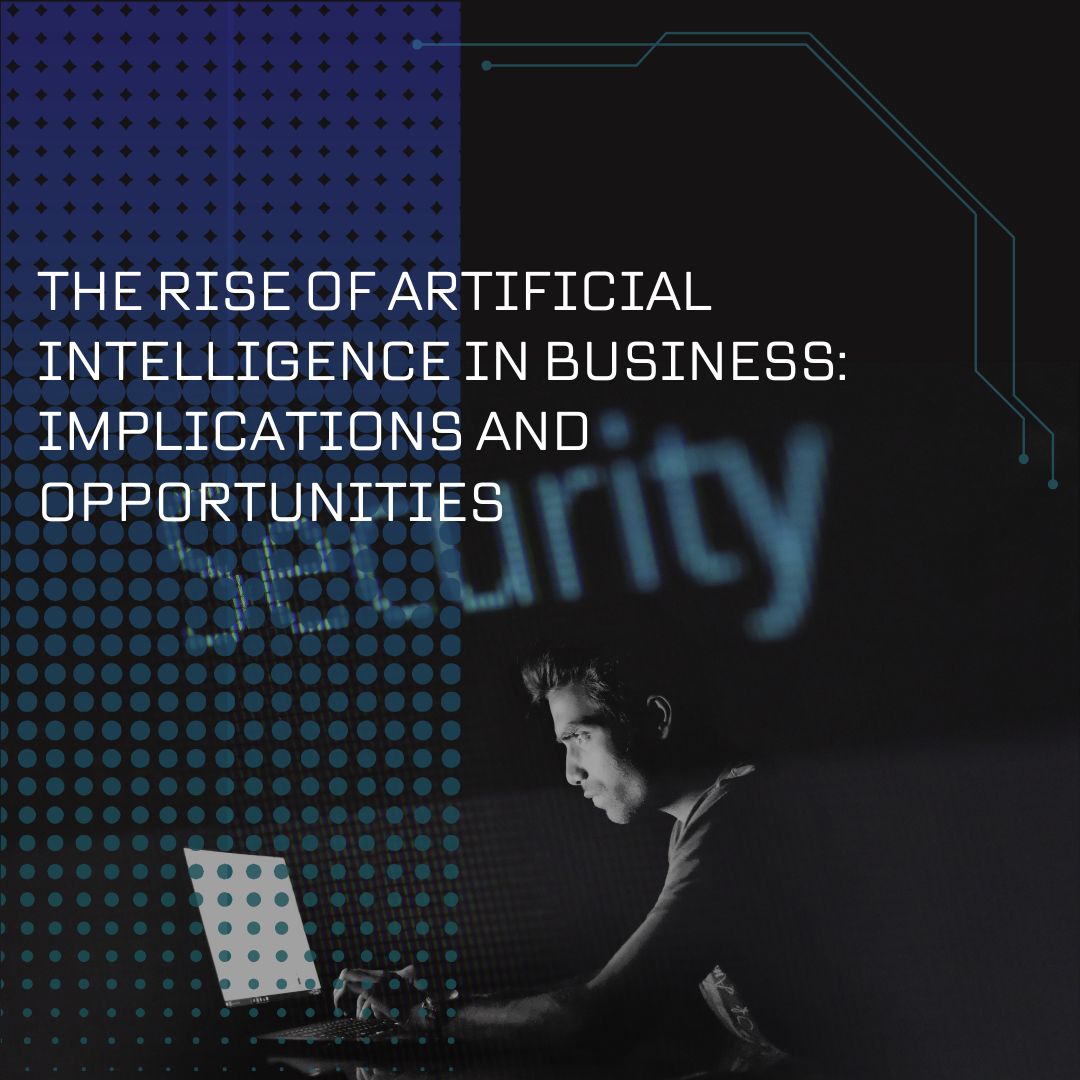Introduction
Artificial Intelligence (AI) has arisen as a game-changing innovation with the possibility to upset different parts of business tasks. From enhancing efficiency and productivity to enabling advanced data analytics and automation, AI presents exciting opportunities for organizations across industries. In this article, we delve into the implications and opportunities associated with the rise of AI in business, exploring its impact on workforce dynamics, customer experience, decision-making, and innovation.
Transforming Workforce Dynamics
The integration of AI technologies in business processes has led to a transformation in workforce dynamics. While there are concerns about job displacement, AI also offers new avenues for collaboration between humans and machines. AI-powered systems can handle repetitive and mundane tasks, freeing up human employees to focus on more strategic and creative endeavors. This shift allows organizations to optimize their workforce, with employees taking on roles that require emotional intelligence, complex problem-solving, and critical thinking. Moreover, AI can assist in upskilling and reskilling efforts, enabling employees to adapt to the changing demands of the digital era.
Revolutionizing Customer Experience
Man-made intelligence can possibly reform the manner in which organizations collaborate with their clients, conveying upgraded and customized encounters. Through simulated intelligence controlled chatbots, menial helpers, and suggestion motors, associations can give all time client service, give custom-made item proposals, and further develop in general consumer loyalty. Regular Language Handling (NLP) and AI (ML) calculations empower artificial intelligence frameworks to comprehend and answer client questions and inclinations, reproducing human-like collaborations. This degree of personalization further develops client commitment as well as adds to expanded client faithfulness and maintenance.
Enlarging Navigation
Man-made intelligence enables organizations to settle on information driven choices by handling and examining immense measures of data continuously. AI calculations can reveal examples, connections, and experiences that might slip through the cracks by human investigators, empowering associations to pursue more precise and informed choices. Simulated intelligence driven prescient examination can estimate market patterns, distinguish expected chances, and advance asset allotment. Furthermore, artificial intelligence controlled choice emotionally supportive networks can help chiefs by giving noteworthy bits of knowledge and suggestions in view of information examination, at last working on functional effectiveness and vital preparation.
Fueling Innovation and Creativity
AI serves as a catalyst for innovation and creativity within organizations. By automating repetitive tasks, AI liberates human employees to focus on ideation, experimentation, and problem-solving. AI-powered tools can generate insights, inspire new product designs, and facilitate rapid prototyping. The fusion of human creativity with AI’s computational capabilities unlocks innovative solutions and drives product and service advancements. Moreover, AI can facilitate the exploration of uncharted territories through predictive modeling and simulations, enabling organizations to anticipate market changes and identify untapped opportunities.
Ethical Considerations and Responsible AI
With the rise of AI, ethical considerations and responsible AI practices become paramount. Organizations must ensure that AI systems are transparent, accountable, and aligned with ethical frameworks. Ethical implications such as data privacy, algorithmic bias, and the impact on human employment need to be addressed proactively. By embracing responsible AI practices, businesses can build trust with their stakeholders and mitigate potential risks associated with AI deployment.
The rise of Artificial Intelligence in business brings forth both implications and opportunities. By transforming workforce dynamics, revolutionizing customer experiences, augmenting decision-making and fueling innovation, AI has the potential to reshape business operations across industries. However, it is crucial to navigate the ethical considerations and adopt responsible AI practices to ensure the technology’s positive impact. As businesses continue to integrate AI into their strategies, the potential for growth, efficiency, and competitive advantage is immense. By embracing AI’s transformative power, organizations can unlock new possibilities, enhance customer experiences, and drive sustainable success in the digital age.
Read more – Small Room Design Ideas for Two People
Read more – 10 Simple and Stylish Room Interior Design Ideas

